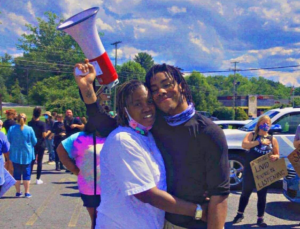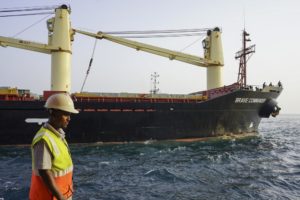The Biden administration has high hopes for the discussions that were slated get underway in Geneva next week.
United Nations talks scheduled to take place next week to avoid an arms race in space are being postponed after Russia insisted it needs more time to prepare, according to two people briefed on the developments.
Expectations have been high that the newly established “open-ended working group” can help fashion international norms that rein in what many see as an unrestrained military competition. The talks could even lay the groundwork for an eventual ban or moratorium on destructive anti-satellite tests, U.S. officials have said.
But Moscow on Wednesday informed the UN Committee on Disarmament, which was preparingto begin the talks in Geneva, Switzerland, on Feb. 14, that it is not prepared to move forward, said the people.
“The meeting has been pushed back,” said a State Department official who was not authorized to speak publicly. The people said the Russians asked for the initial round of U.N. discussions to be delayed until May.
The U.N. Conference on Disarmament did not immediately respond to a request for comment. The Russian and Chinese missions to the U.N. also did not immediately respond.
The request for postponement comes amid a deepening crisis in U.S.-Russia relations as Moscow masses more than 100,000 troops and scores of heavy equipment on the border with Ukraine.
The space working group was established by the U.N. General Assembly in December andbacked by 163 nations, which all agreed they were “seriously concerned about the possibility of an arms race in outer space.”
The resolution put forward by the U.K. also expressed concern about “the fragility of the space environment and the challenges to the long-term sustainability of outer space activities, in particular the impact of space debris.”
The process was given a two-year mandate.
The venue is considered the biggest test yet of whether a global consensus can be reached on how to keep the peace in space after Russia’s destructive anti-satellite test last year created thousands of pieces of orbital debris and sparked international calls for a ban on such tests.
Moscow also was criticized for the positioning of a satellite carrying a weapon in close proximity to a U.S. government satellite in 2020.
“This open-ended working group seems like the place to start having really comprehensive discussions on it,” a senior State Department official recently told POLITICO.
The official had been counting on both Russia and China to come to the negotiating table next week, even though they did not back the proposal.
“Despite voting against the resolution … my sense is they will show up in Geneva,” the official, who agreed to discuss the diplomatic planning only on the condition of anonymity, said earlier this month.
There are relatively few limits on activities in space. The Outer Space Treaty of 1967 bars weapons of mass destruction in space and outlaws military installations on the moon but did not anticipate thousands of satellites operated by dozens of nations and private entities, including many operated by military adversaries.
“So one of the big issues we’ve discovered is a gap in trying to create norms of responsible behavior related to the interaction of security satellites, national security satellites in outer space,” the senior State Department official said.
“There is a huge debate about responsible behavior in space and a lot of this is coming out of the military because the United States is disproportionately dependent on space assets relative to every other major space power,” said Saadia Pekkanen, co-founder of the Space Policy and Research Center at the University of Washington.
“The cooperation of China, Russia and India will be vital,” said Namrata Goswami, a space analyst and former adviser to the Indian Ministry of Defense and U.S. Air Force, noting they all possess anti-satellite weapons.
“The reason that these talks are important is that they will start the process of testing the ground of whether space norms and principles can be developed,” she added, “given the caginess of some states to bind themselves into agreements that may limit their own national security considerations.”
“The wild card will be the Russians and Chinese,” said Victoria Samson, Washington director for the Secure World Foundation, which has convened discussions on the issue with Chinese and Russian space experts. “They did agree to participate but we’ll see.”
She was also informed by U.N. colleagues that next week’s session has been postponed after Russia said it would not participate.




